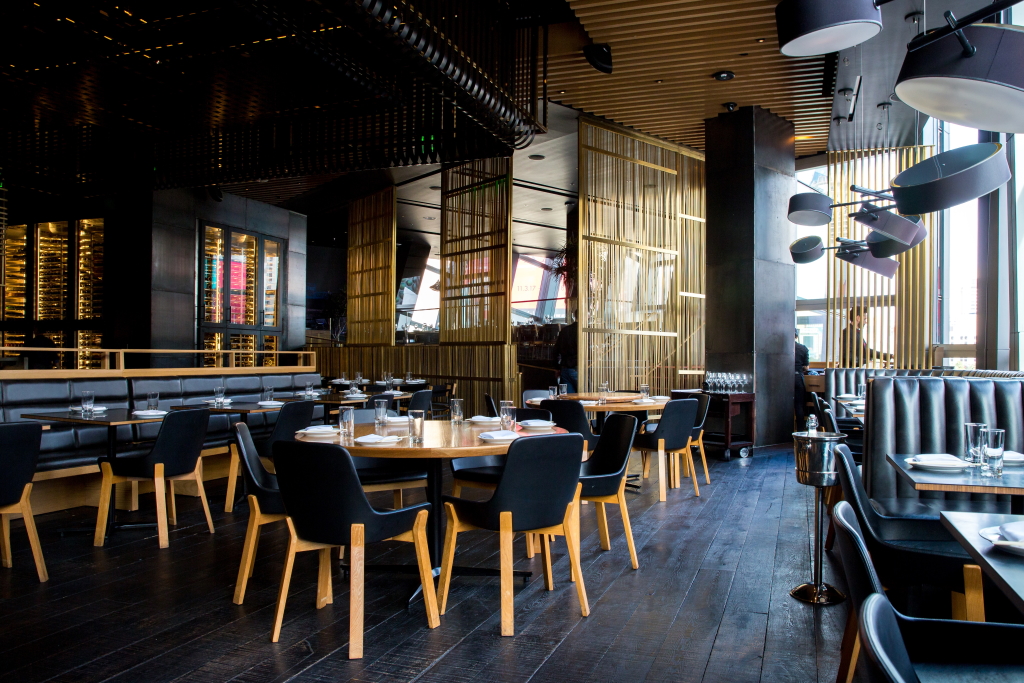
In today’s fast-paced restaurant industry, managing operations efficiently and providing excellent customer service are crucial for success. One of the key tools that can help restaurants streamline their operations is a Point of Sale (POS) system. A restaurant POS system is a comprehensive software solution that combines hardware and software components to facilitate various functions, including order processing, payment handling, inventory management, and reporting. In this article, we will dive deep into the importance of a restaurant POS system and how it can benefit your establishment.
Why is a Restaurant POS System Important?
Running a restaurant involves juggling multiple tasks simultaneously. From taking orders accurately to managing inventory and handling payments, each aspect demands attention and efficiency. A well-integrated restaurant POS system can simplify these tasks and offer numerous benefits for your business.
Enhanced Order Accuracy and Speed
Taking orders manually or relying on traditional methods can lead to human errors, such as incorrect orders or missed modifiers. This can result in dissatisfied customers and loss of revenue. A restaurant POS system automates the ordering process, allowing staff to enter orders directly into the system. The orders are then transmitted to the kitchen, ensuring accuracy and minimizing delays. With a POS system, you can serve your customers faster, leading to increased customer satisfaction.
Streamlined Payment Processing
Efficient payment processing is crucial for any restaurant. A restaurant POS system enables seamless integration with payment gateways, allowing for quick and secure transactions. Customers can choose to pay with cash, credit cards, mobile wallets, or other digital payment methods. The system calculates the total bill, applies any discounts or promotions, and generates itemized receipts, simplifying the checkout process for both customers and staff.
Effective Inventory Management
Managing inventory is a critical aspect of running a restaurant. With a restaurant POS system, you can easily track and manage your inventory in real-time. The system automatically updates the inventory levels as orders are placed, ensuring you have accurate information about stock availability. This helps prevent stockouts and overstocking, optimizing your purchasing decisions and reducing wastage.
Detailed Reporting and Analytics
Understanding the performance of your restaurant is essential for making informed business decisions. A restaurant POS system generates comprehensive reports and analytics, providing insights into sales, customer trends, popular menu items, and staff performance. By analyzing these reports, you can identify areas of improvement, optimize your menu, adjust pricing strategies, and enhance overall operational efficiency.
Key Features of a Restaurant POS System
A restaurant POS system offers a wide range of features that cater to the unique needs of the industry. Here are some key features to consider when choosing a POS system for your restaurant:
1. Menu Management
A robust POS system allows you to easily manage and customize your menu. You can update menu items, add specials, modify prices, and set different options and variations for each dish.
2. Table Management
Efficiently managing tables is essential for optimizing seating capacity and providing seamless service. A POS system with table management capabilities enables staff to track table statuses, manage reservations, and ensure timely seating and service.
3. Order Management
A restaurant POS system simplifies the order management process. Staff can take orders directly from the table, send them to the kitchen or bar, and track the status of each order. This reduces errors and improves order accuracy.
4. Customer Relationship Management (CRM)
Building strong customer relationships is vital for the success of any restaurant. A POS system with CRM features allows you to store customer information, track preferences, and offer personalized promotions and loyalty programs.
5. Reporting and Analytics
Comprehensive reporting and analytics provide valuable insights into your restaurant’s performance. Look for a POS system that offers detailed reports on sales, inventory, labor costs, and customer behavior. These reports can help you identify trends, make data-driven decisions, and improve overall profitability.
6. Integration with Third-Party Services
A restaurant POS system that integrates with other essential services can further streamline your operations. Look for systems that can integrate with online ordering platforms, reservation systems, accounting software, and loyalty programs. This integration ensures seamless data flow and avoids the need for manual data entry.
7. Staff Management
Efficiently managing your staff is crucial for maintaining a smooth operation. A POS system with staff management features allows you to schedule shifts, track employee hours, and monitor performance. It can also help with automated payroll calculations, reducing administrative tasks.
Frequently Asked Questions (FAQs)
Here are some commonly asked questions about restaurant POS systems:
1. How much does a restaurant POS system cost?
The cost of a restaurant POS system can vary depending on the provider, features, and size of your establishment. It’s important to consider both upfront costs (hardware, software licenses) and ongoing fees (support, updates). Some providers offer subscription-based models, while others may require a one-time payment.
2. Can a restaurant POS system help with inventory management?
Yes, a restaurant POS system can greatly assist with inventory management. It allows you to track ingredient usage, monitor stock levels, set up automatic alerts for low inventory, and generate reports for efficient purchasing and reducing wastage.
3. Can a restaurant POS system handle multiple locations?
Yes, many restaurant POS systems are designed to handle multiple locations. They offer centralized management, allowing you to monitor and control operations across different branches from a single dashboard. This streamlines processes and ensures consistency.
4. How secure are restaurant POS systems?
Restaurant POS systems prioritize security to protect sensitive customer data and financial information. Look for systems that are Payment Card Industry Data Security Standard (PCI-DSS) compliant and offer encryption, tokenization, and other security measures. Regular software updates and strong password policies are also essential for maintaining system security.
5. Can a restaurant POS system integrate with online ordering platforms?
Yes, most modern restaurant POS systems can integrate with popular online ordering platforms. This integration allows orders placed online to flow directly into the POS system, eliminating the need for manual entry and reducing errors.
6. How can a restaurant POS system improve customer service?
A restaurant POS system improves customer service by streamlining operations, reducing wait times, and minimizing errors in orders and payments. With features like tableside ordering and mobile payment processing, staff can provide faster and more efficient service, leading to increased customer satisfaction.
Conclusion
A restaurant POS system is a valuable tool that can significantly enhance your restaurant’s operations and improve the overall customer experience. From order accuracy and speed to streamlined payments, effective inventory management, and detailed reporting, the benefits are numerous. By investing in a reliable and feature-rich POS system, you can optimize your restaurant’s efficiency, boost profitability, and stay ahead in today’s competitive industry.



No comment yet, add your voice below!